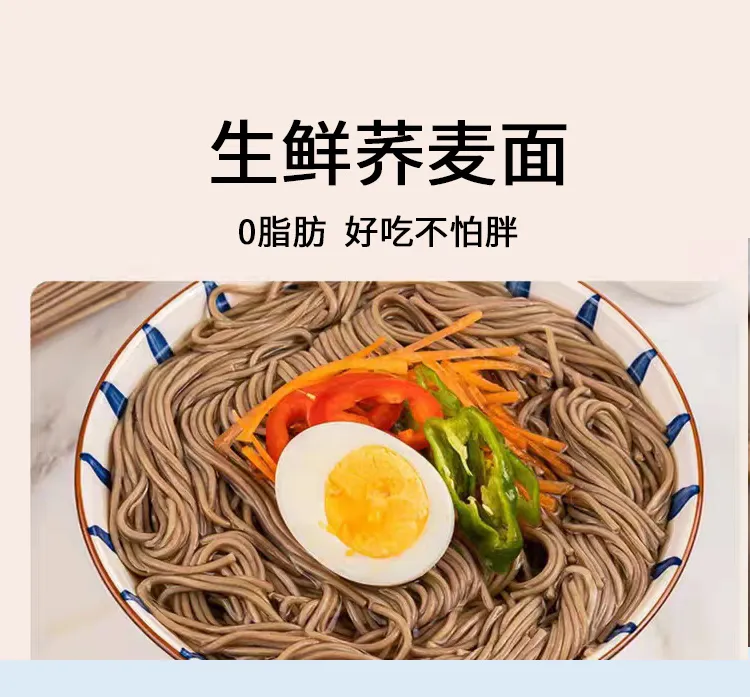are soba noodles gluten free
Are Soba Noodles Gluten Free?
Soba noodles, a traditional Japanese staple, have gained popularity worldwide for their unique flavor, versatility, and potential health benefits. Made primarily from buckwheat flour, they are often seen as a healthier alternative to traditional wheat noodles. However, a common question arises among health-conscious consumers and those with dietary restrictions Are soba noodles gluten free?
Understanding Soba Noodles
Soba noodles have a rich history in Japanese cuisine, tracing back centuries. While they are primarily made from buckwheat, which is naturally gluten-free, many commercially produced soba noodles are made from a blend of buckwheat flour and wheat flour. This blend is often used to enhance the texture and elasticity of the noodles, making them easier to handle and cook. Consequently, it is essential to read labels carefully if you are avoiding gluten.
The Gluten Factor
Gluten is a protein found in wheat, barley, and rye. For individuals with celiac disease, gluten sensitivity, or wheat allergies, consuming gluten can lead to severe health consequences. Therefore, it is crucial for those on gluten-free diets to know the exact ingredients in the products they consume. Traditional soba noodles made from pure buckwheat flour are gluten-free, but many brands and varieties contain wheat, making them unsafe for those with gluten-related disorders.
Finding Gluten-Free Soba Noodles
If you are looking to incorporate soba noodles into your gluten-free diet, seek out products labeled as gluten-free. These noodles are typically made with 100% buckwheat flour and may also include other gluten-free grains such as rice or millet. Some brands offer soba noodles specifically designed for gluten-sensitive individuals, ensuring safety and nutrition without compromising on taste.
are soba noodles gluten free

When purchasing gluten-free soba noodles, it's essential to check for certification. A certified gluten-free product has undergone thorough testing to ensure it meets strict gluten-free standards, usually containing less than 20 parts per million (ppm) of gluten. This certification provides peace of mind for consumers who need to avoid gluten.
Nutritional Benefits of Soba Noodles
Soba noodles are not only a tasty alternative to regular pasta but also boast several nutritional benefits. Buckwheat is rich in protein, fiber, and essential nutrients like manganese, magnesium, and phosphorus. It also contains antioxidants and has a low glycemic index, making it a smart choice for individuals looking to maintain stable blood sugar levels. Moreover, buckwheat is a complete protein, meaning it contains all nine essential amino acids, which is relatively rare among plant-based foods.
Cooking with Soba Noodles
Cooking soba noodles is simple and versatile. They can be served hot or cold and are a delightful addition to soups, stir-fries, salads, and grain bowls. When preparing soba noodles, it is essential to follow the cooking instructions carefully, as they can easily become mushy if overcooked. For an authentic experience, consider pairing them with traditional Japanese ingredients such as soy sauce (make sure it's gluten-free), wasabi, and sesame oil.
For a refreshing summer dish, try cold soba noodle salads with fresh vegetables, a drizzle of sesame dressing, and a sprinkle of sesame seeds. Alternatively, in the colder months, soba noodles make a comforting addition to soup, providing warmth and nourishment in a single bowl.
Conclusion
In conclusion, while soba noodles have the potential to be a healthy, gluten-free option, it's crucial to read labels and confirm the ingredients before consumption. Pure buckwheat soba noodles are naturally gluten-free, but many commercial varieties may contain wheat flour. For those on gluten-free diets, ensure you select certified gluten-free options to enjoy the myriad benefits of soba noodles without the risks associated with gluten. With the right choices, soba noodles can be a delicious and healthful addition to any meal, offering both flavor and nutrition to your plate.
-
Unleash Your Inner Chef with Delectable Italian Pasta CreationsNewsAug.01,2025
-
Savor Health and Flavor: Irresistible Soba Noodles for Sale Await!NewsAug.01,2025
-
Nourish Your Body with Premium Organic Ramen - A Culinary Delight AwaitsNewsAug.01,2025
-
Elevate Your Dishes with Our Exquisite Kinds of Egg NoodlesNewsAug.01,2025
-
Dive into Flavorful Convenience with Our Ramen OfferingsNewsAug.01,2025
-
Discover Exquisite Types of Naengmyeon and Chilled Soba NoodlesNewsAug.01,2025
-
Is Whole Wheat Pasta Healthy?NewsMay.30,2025
Browse qua the following product new the we

















































































































